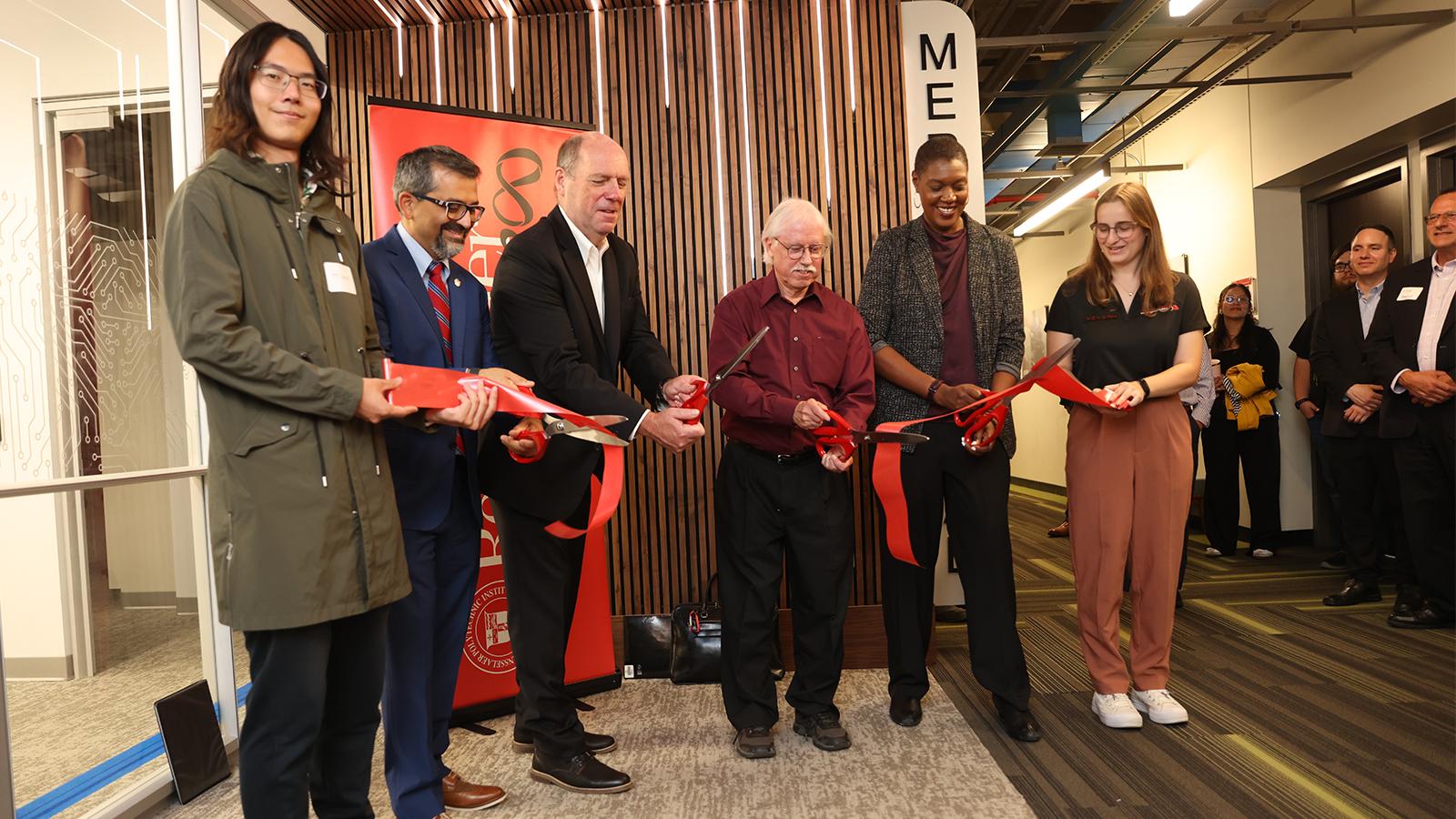State-of-the-art facility will enhance learning, experimentation, and collaboration
September 25, 2024

Many engineers share a similar origin story: An early passion for taking things apart, seeing how they worked, then making them better — or transforming them into something brand new.
At RPI, that drive to learn, tinker, and invent now has a headquarters in the Douglas A. Mercer ’77 Innovation and Exploration Laboratory, which officially re-opened its doors on September 25 after a year-long renovation.
Known as the Mercer XLab, the facility will offer students tools, space, and mentorship to tackle engineering projects in hands-on, creative, and collaborative ways. Made possible by the generous support of RPI alumnus Douglas A. Mercer ’77, the lab’s innovative approach reflects RPI’s 200-year history of reinventing scientific and technological education.
“I like to view this newly expanded XLab space in the context of an idea expressed by William Thomson (Lord Kelvin) back in 1883: ‘The first essential step in the direction of learning any subject is to find practicable methods for measuring some quality connected with it,’” Mercer said. “When you can measure a thing you know something about it. The lab is a place where students can expand their understanding by sharpening their skills at measuring things beyond the traditional classroom.”
“Two hundred years ago, Amos Eaton helped found RPI on the then-radical idea of educating students not just through lectures but through hands-on learning in the form of field studies, lab experiments, and teaching their peers,” said Martin A. Schmidt ‘81, Ph.D., president of RPI. “The Mercer XLab is the 21st century take on Eaton’s vision for educating the next generation.”
True to Eaton’s legacy, the lab is founded on three pillars: curriculum and self-directed learning innovation, student exploration, and idea exchange through cross-pollination.
Shayla Sawer, Ph.D. ’06, director of the Mercer XLab and a professor in the Department of Electrical, Computer, and Systems Engineering (ECSE), is known for courses that challenge students to solve real-world problems. In her courses, students master skills and concepts by designing, calculating, simulating, building, fabricating, measuring, and trouble-shooting their own inventions.
“RPI students are creators that study science and engineering to elevate their creations with theory while grounding them to reality through practical hands-on experiences. This lab gives them the resources outside of the classroom to churn through the gauntlet of theory and practice as they wrestle with new ideas and concepts,” Sawyer said.
The lab is heavily inspired by the career and vision of its benefactor, Doug Mercer, who made major contributions to analog-digital conversation, an integral technology in many modern devices, including cell phones.
After graduating from RPI in 1977 with a bachelor’s degree in electrical engineering, Mercer joined Analog Devices Inc. (ADI). There he contributed to more than 30 commercial products, and he holds 13 U.S. patents. Mercer was appointed ADI Fellow in 1995, and since his retirement from full-time work in 2009, he serves as Fellow Emeritus, mainly contributing to the ADI University Program.
He has long been a steadfast supporter of hands-on learning in the ECSE Department. Since 2007, he has sponsored a student circuit design contest and endowed a distinguished lecturer seminar series. In 2012, he established an endowment for the Douglas Mercer ’77 Laboratory for Student Exploration & Innovation. The Mercer XLab is an expansion of this program.
“We are grateful for Doug Mercer’s steadfast dedication to RPI over the years. His insights and enthusiasm as a member of our departmental advisory council and his very generous support have allowed us to offer unparalleled educational opportunities to the next generation of ECSE students,” said John Wen, Ph.D. ’85, head of the Department of Electrical, Computer, and Systems Engineering.
“Engineering is about creative problem solving and collaboration with other brilliant minds, a skill that can only be fully developed outside the traditional classroom,” said Shekhar Garde, Ph.D., dean of the RPI School of Engineering. “The Mercer XLab will not only immerse students in these kinds of experiences but also serve as an example of the future of STEM education.”